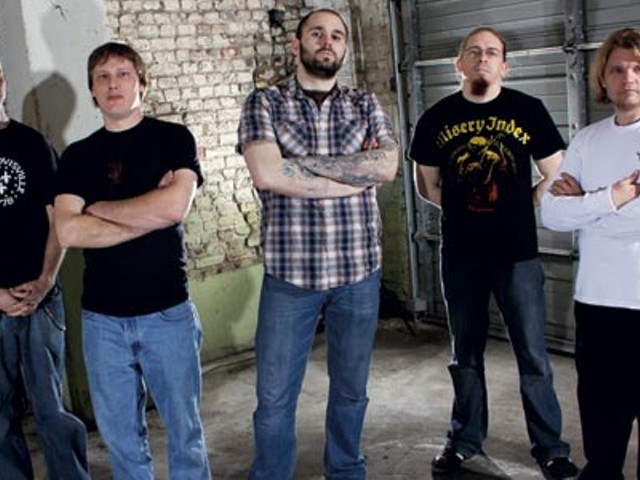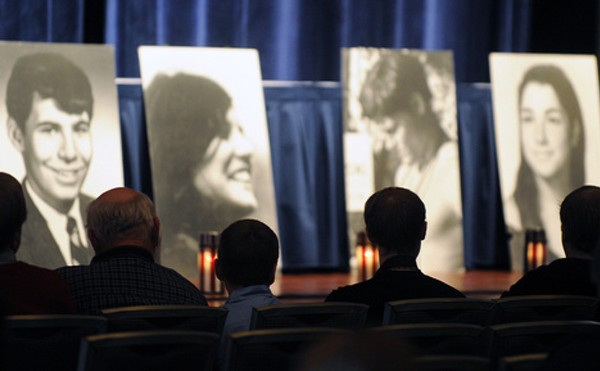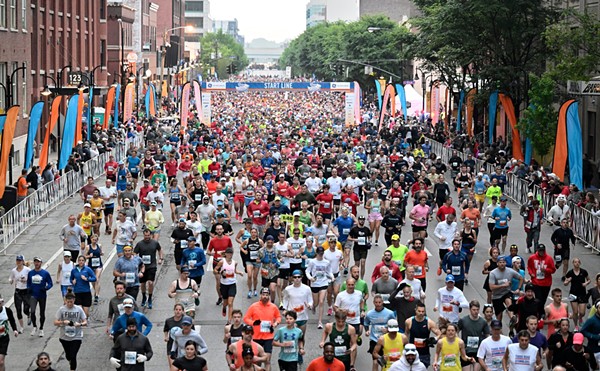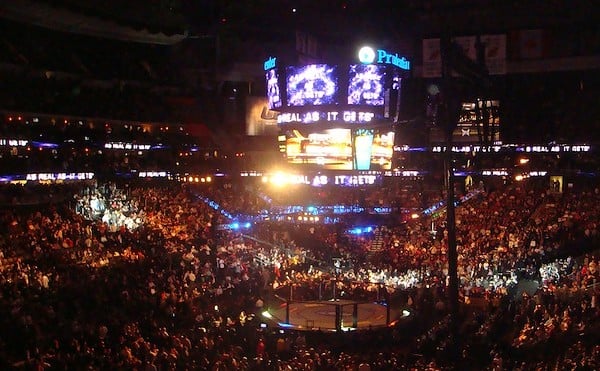Conducted via e-mail.
LEO: A few housekeeping questions: What do you do now (re: job)?
Duncan Barlow: I am a professor of English at a small private college in Florida right now. I have also just started a small literary press called Astrophil Press; our first two releases are currently available.
LEO: What is the status of your other projects (Lion Sized, d. biddle)?
DB: d.biddle is operating remotely. We released a record this past summer, with which we’re very happy. I fly into Denver every few months, and we work on songs and occasionally play shows. This incarnation of the band has very good chemistry and we are doing what we can to keep the momentum going. I left Lion Sized and they are continuing without me. They enlisted Shane Trost (Delta 72 and Slim Cessna’s Auto Club) as a replacement.
LEO: Punk Planet wrote about your dissatisfaction with hardcore, and you made quite an effort to distance yourself from the genre many years ago. What compelled you to discuss the history of Endpoint or Guilt, let alone reunite Guilt for the May release of Burning Fight (in Chicago)?
DB: I had to distance myself from the hardcore music scene. It had transformed into something with which I could no longer identify. I have never had trouble talking about my involvement in the music movement, as I was never embarrassed by what we accomplished. Brian Peterson’s book is the first of a few books that are coming out that focus on this particular era of the hardcore/punk music scene. His approach is unique and very honest. Reuniting seems like the natural thing to do in this situation. Guilt still keeps in contact with each other, and we all look very fondly on those volatile years. Honestly, I’m very excited to spend time with Jon, Kyle and Ashli. I miss them very dearly. I think the show was organized in a manner that was very true to the ’90s hardcore ethic; all of the proceeds from the festival will be donated to various charities.
LEO: One of the reasons Peterson says he wrote “Burning Fight” was “American Hardcore”’s implication that “hardcore” music died in 1986. From your perspective, is it a miscategorization to say that Endpoint, Guilt and the other bands of the late ’80s and early ’90s were “hardcore”?
DB: Publishing and academia are very similar in some ways, or we could say that they have an interconnecting string in that they both need a unique stance or a claim. The director/writer of “American Hardcore” makes an argument for a particular moment in the movement. Peterson’s book challenges the claim that hardcore died in the 1980s. I find that it would be incredibly problematic to say that the movement died in the ’80s or ’90s. It’s one thing to say that the movement has transformed and become different from what one remembers, but to say it’s dead would be very shortsighted.
However, people need to make claims in order to have a piece of the argument. In “Get in the Van” by Henry Rollins, he makes a claim that modern bands don’t work as hard as Black Flag or, at very best, that new bands don’t have it as hard as they did. An outsider or even a former insider who is now oblivious to what is happening in the music scene might very well accept this claim without evaluating it; however, it’s a very weak claim. I meet young musicians every year that work just as hard as the early punk and hardcore bands, and they have just as many interesting stories regarding their hardships. People often want to think that their era of involvement within a particular culture was more authentic, but it’s important for us to realize that it is crucial for a movement or music genre to evolve and change in order for it to retain its power. Once something can be easily defined, it can be duplicated and then it is no longer a threat to the mainstream or status quo.
LEO: Hardcore music isn’t in a very creative place today, and you hint at that when you mention “high-end compression,” a sonic trait of many emo, screamo and post-emo groups right now. What qualities are these bands failing to pick up on or exploit that you recognized early on?
DB: If we look at the average recording budget for most hardcore/punk record labels these days, we can see a very big difference between the late 80s and early 90s. We recorded many of the records we released for under $5,000. You would be hard-pressed to find a release that is recorded for under $5,000 these days … perhaps even under $20,000. Endpoint never spent over $1,000 on a record. Naturally, these records don’t hold a candle to modern bands in regards to fidelity, but they do have something many records lack these days: dynamics. There is so much compression on modern records, and I find them very hard to stomach. Moreover, the use of pitch correction is running fairly rampant these days. Pitch correcting screams seems odd to me, but producers are paid to provide the bands with what the market demands.
LEO: Reading Kyle’s comments about the attendance at Guilt’s 1997 reunion show (1,000-plus), and more importantly, Guilt’s albums, do you think it was possible for Guilt to continue, and what would it have taken?
DB: Guilt could not have continued. We were a volatile mix. The final show was amazing. However, we just couldn’t keep going. We had to stop because we were all growing apart musically and emotionally.
LEO: One of the themes that keeps recurring in your comments, especially with respect to Endpoint, is the theme of responsibility: to your fans, to music, to exposing the flaws in society and working to fix them. How do you view this sense of responsibility now, when the spotlight isn’t — and I don’t mean this in a derogatory way — shining on you as brightly as it once did?
DB: No offense taken. It’s not like kids are lining up to buy d.biddle records. We were very lucky to have had such a good response to our efforts when we were younger, and I don’t expect that we are owed anything more in our lives. I think it’s fair to say that many of us who were involved in these bands try to live our lives by example. We are trying to positively impact our world through cultural, political and social involvement. If you look at Lee Fetzer, he works with orphans. Kyle is involved with providing help through his church. Rob has been working with citizens with special needs. I am working in education. We are taking the ideals we developed through he music scene and applying them in the world at large.
LEO: You haven’t lived in Louisville for almost a decade now. Has the physical and, perhaps emotional, distance from Endpoint and Guilt altered the way you look at the bands’ legacies? If so, in what ways? If not, why not?
DB: It is a strange phenomenon, actually. Just when I think that absolutely everyone in the world has forgotten about the bands, I’ll run into a stranger who will recognize me. I was in San Francisco recently and someone stopped me in a movie theater and asked me if I used to be in Endpoint. It’s an awkward but nice feeling to realize that people allowed any of my bands the opportunity to participate in their lives. It is the really amazing thing about the punk/hardcore scene. People feel comfortable enough to talk to you years and years later.
HEAR MORE:
Guilt
myspace.com/bardstownuglybox
Q&A: Duncan Barlow
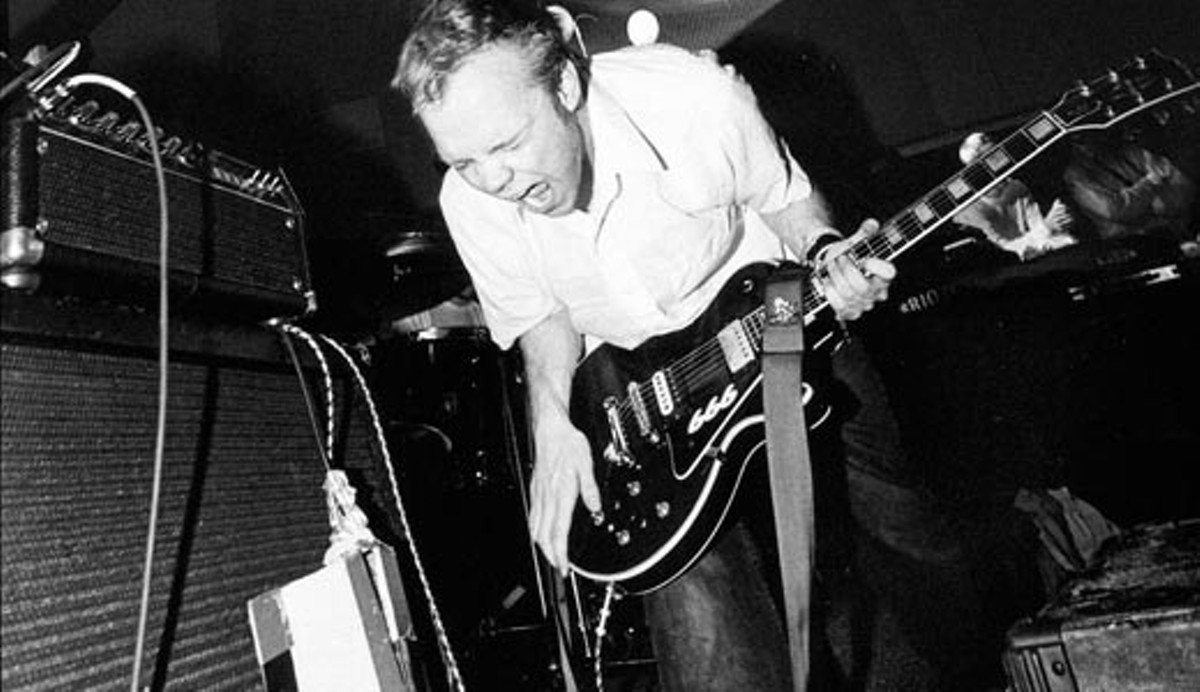
Barlow, shown here at Endpoint's final show in 1994. He now teaches in Florida. Guilt, the band he fronted for nearly eight years, reunites for a show at Headliners May 1.
Sean Cronan
[
{
"name": "GPT - Rectangle - Inline - Content",
"component": "15818221",
"insertPoint": "5th",
"startingPoint": "3",
"requiredCountToDisplay": "3",
"maxInsertions": 100
}
]

